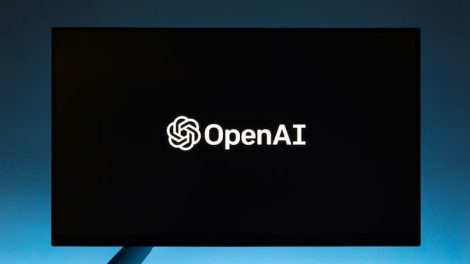In a significant move that underscores the growing relevance of artificial intelligence in shaping future industries, ElevenLabs, an AI-powered voice cloning startup, has secured $250 million in its latest Series C funding round. The announcement of this substantial funding has not only caught the attention of investors but also of those closely monitoring the development and ethical implications of AI technologies. This milestone is a testament to the startup’s innovative capabilities in voice synthesis and cloning and reflects the confidence of major investors in the transformative potential of this technology.

ElevenLabs specializes in AI-driven voice cloning technology, which has emerged as a focal point for both technological advancement and ethical scrutiny. The startup has developed a proprietary platform capable of creating lifelike voice reproductions from minimal input. This capability is particularly sought after in various industries such as entertainment, media, accessibility services, and education. Whether you’re interested in creating synthetic voiceovers for movies or using voice cloning for accessibility purposes like audiobooks for the visually impaired, the technology opens up a world of possibilities.
The $250 million raised in this funding round represents a significant step forward in scaling operations, enhancing research capabilities, and accelerating the commercialization of ElevenLabs’ proprietary voice cloning software. Investors in this round include several high-profile venture capital firms and strategic partners, demonstrating broad market interest and the increasing recognition of voice cloning as a key AI frontier. The funding will enable the company to expand its engineering team, bolster its data infrastructure, and address some of the ethical and regulatory challenges associated with voice cloning technology.
Voice cloning has been a divisive subject in recent years, and ElevenLabs’ advancements have brought both excitement and caution. At its core, the technology involves using machine learning models to replicate a person’s voice in a way that sounds natural and indistinguishable from the original. This has obvious applications in fields such as media and entertainment, where producers can save both time and money by using cloned voices instead of requiring repeated voiceover sessions. However, the same technology raises critical concerns about misuse, particularly in areas such as misinformation, identity theft, and unauthorized use of voice data.
One area where ElevenLabs has seen significant traction is in accessibility solutions. AI-driven voice synthesis has proven instrumental in creating audio versions of text for individuals with visual impairments or other disabilities. For example, educational content can be easily converted into audio formats, providing an inclusive learning experience. Similarly, businesses can use cloned voices to create customized interactive voice response systems, ensuring a more personalized user experience. The potential applications are vast and provide tangible benefits across multiple domains.
However, with innovation comes responsibility. ElevenLabs has emphasized its commitment to ethical AI development and user privacy. The company has implemented stringent verification protocols to ensure that voice cloning is authorized and ethical. This includes secure data handling practices and tools that allow users to monitor and control how their voices are used. These safeguards are designed to mitigate some of the more concerning risks associated with the misuse of AI voice cloning, such as deepfake audio scams or unauthorized impersonations.
To give you a clearer picture of the scope and potential applications of this technology, the following table illustrates the primary use cases for AI-driven voice cloning:
| Application | Description | Potential Impact |
|---|---|---|
| Media and Entertainment | Creating lifelike voiceovers for films, video games, and audiobooks. | Reduces production costs and time while enhancing realism. |
| Accessibility | Converting written content into audio for visually impaired users. | Promotes inclusivity and access to educational resources. |
| Customer Service | Personalizing automated systems with synthetic voices for a human-like touch. | Improves user experience and engagement. |
| Language Learning | Developing interactive language tools with accurate pronunciation. | Facilitates faster and more effective learning. |
| Historical Preservation | Cloning voices of historical figures for educational exhibits. | Enriches cultural and historical education. |
The funding success of ElevenLabs also highlights the broader trend of AI investments across the tech industry. As artificial intelligence continues to disrupt traditional workflows and enable new possibilities, startups like ElevenLabs are leading the charge in demonstrating how AI technologies can be integrated into everyday applications. Analysts suggest that voice cloning will eventually become as commonplace as text-to-speech technology, which has already seen widespread adoption.
While ElevenLabs’ focus remains on scaling its technology responsibly, the competitive landscape for AI voice synthesis is rapidly evolving. Other companies in the space are racing to develop similar tools, each vying for a share of the growing market. This competition is driving advancements in model accuracy, language support, and usability. For ElevenLabs, staying ahead means leveraging its financial resources to remain innovative while continuing to prioritize ethical considerations.
Given the increasing attention on the ethical use of AI, ElevenLabs’ proactive stance on regulations and user consent could set a precedent for the industry. The company has collaborated with academic institutions and government bodies to establish guidelines for ethical AI development, particularly in voice cloning. This includes creating clear policies for how cloned voices can be used and shared, along with transparent accountability measures.
The success of ElevenLabs also reflects the growing demand for specialized AI solutions tailored to specific industries. For instance, in the healthcare sector, voice cloning can assist in creating synthetic voices for individuals who have lost their ability to speak. By using the patient’s recorded voice data, personalized voice synthesis can provide a sense of familiarity and emotional comfort, a feature that generic text-to-speech programs cannot offer.
As an emerging leader in voice cloning technology, ElevenLabs has managed to strike a balance between innovation and responsibility. With $250 million in new funding, the company is poised to further refine its technology and expand its market reach. However, as voice cloning technology becomes increasingly sophisticated, the onus is on companies like ElevenLabs to ensure that their innovations are used for the greater good.
The road ahead for AI voice cloning is filled with opportunities and challenges. As a user, it’s essential to understand both the potential and the risks associated with this technology. Whether you’re a content creator exploring new ways to engage your audience or a business owner looking to improve customer interactions, voice cloning offers powerful tools that can transform how you operate. At the same time, staying informed about ethical practices and regulatory measures will help ensure that you use these tools responsibly.
The recent funding announcement is more than just a financial milestone; it’s a signal of what’s to come in the AI-driven future. As ElevenLabs continues to push the boundaries of what’s possible in voice cloning, the industry will undoubtedly see further innovation, increased competition, and ongoing discussions about the ethical implications of this transformative technology. By focusing on transparency, trust, and user benefits, ElevenLabs is setting a standard for what responsible AI innovation should look like.










Add Comment